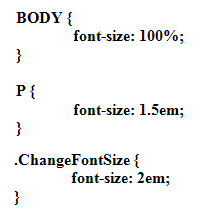


Trying to get anything right on the first really critical try is an extraordinary ask, in science and in engineering. Humanity does not learn from the mistake and dust itself off and try again, as in other challenges we’ve overcome in our history, because we are all gone. And the thing about trying this with superhuman intelligence is that if you get that wrong on the first try, you do not get to learn from your mistakes, because you are dead. Solving safety of superhuman intelligence-not perfect safety, safety in the sense of “not killing literally everyone”-could very reasonably take at least half that long. It took more than 60 years between when the notion of Artificial Intelligence was first proposed and studied, and for us to reach today’s capabilities. We are not going to bridge that gap in six months. It shows an overwhelming gap between how seriously we are taking the problem, and how seriously we needed to take the problem starting 30 years ago. This is not how the CEO of Microsoft talks in a sane world. 7, Satya Nadella, CEO of Microsoft, publicly gloated that the new Bing would make Google “come out and show that they can dance.” “I want people to know that we made them dance,” he said. It’ll just be “I don’t know nobody knows.” If you can’t be sure whether you’re creating a self-aware AI, this is alarming not just because of the moral implications of the “self-aware” part, but because being unsure means you have no idea what you are doing and that is dangerous and you should stop. If that’s our state of ignorance for GPT-4, and GPT-5 is the same size of giant capability step as from GPT-3 to GPT-4, I think we’ll no longer be able to justifiably say “probably not self-aware” if we let people make GPT-5s. But I mark that, with how little insight we have into these systems’ internals, we do not actually know. And that was probably correct I agree that current AIs are probably just imitating talk of self-awareness from their training data. We already blew past that old line in the sand. The rule that most people aware of these issues would have endorsed 50 years earlier, was that if an AI system can speak fluently and says it’s self-aware and demands human rights, that ought to be a hard stop on people just casually owning that AI and using it past that point.
#FONT SIZE TWEETEN HOW TO#
With that said, I’d be remiss in my moral duties as a human if I didn’t also mention that we have no idea how to determine whether AI systems are aware of themselves-since we have no idea how to decode anything that goes on in the giant inscrutable arrays-and therefore we may at some point inadvertently create digital minds which are truly conscious and ought to have rights and shouldn’t be owned. The other leading AI lab, DeepMind, has no plan at all.Īn aside: None of this danger depends on whether or not AIs are or can be conscious it’s intrinsic to the notion of powerful cognitive systems that optimize hard and calculate outputs that meet sufficiently complicated outcome criteria. Just hearing that this is the plan ought to be enough to get any sensible person to panic. OpenAI’s openly declared intention is to make some future AI do our AI alignment homework. There’s no proposed plan for how we could do any such thing and survive. If somebody builds a too-powerful AI, under present conditions, I expect that every single member of the human species and all biological life on Earth dies shortly thereafter. In today’s world you can email DNA strings to laboratories that will produce proteins on demand, allowing an AI initially confined to the internet to build artificial life forms or bootstrap straight to postbiological molecular manufacturing. A sufficiently intelligent AI won’t stay confined to computers for long. Visualize an entire alien civilization, thinking at millions of times human speeds, initially confined to computers-in a world of creatures that are, from its perspective, very stupid and very slow. To visualize a hostile superhuman AI, don’t imagine a lifeless book-smart thinker dwelling inside the internet and sending ill-intentioned emails. Valid metaphors include “a 10-year-old trying to play chess against Stockfish 15”, “the 11th century trying to fight the 21st century,” and “ Australopithecus trying to fight Homo sapiens“. The likely result of humanity facing down an opposed superhuman intelligence is a total loss. That kind of caring is something that could in principle be imbued into an AI but we are not ready and do not currently know how.Ībsent that caring, we get “the AI does not love you, nor does it hate you, and you are made of atoms it can use for something else.” Without that precision and preparation, the most likely outcome is AI that does not do what we want, and does not care for us nor for sentient life in general.


 0 kommentar(er)
0 kommentar(er)
